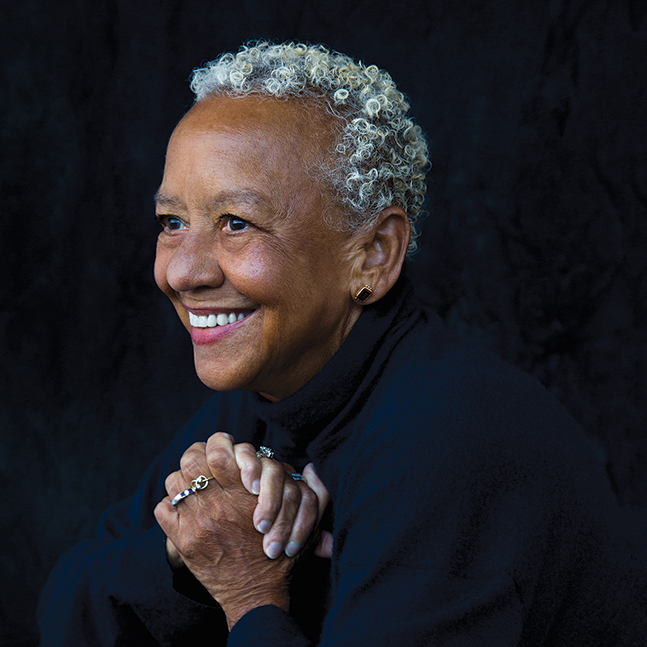I was born in the congo
I walked to the fertile crescent and built
the sphinx
I designed a pyramid so tough that a star
that only glows every one hundred years falls
into the center giving divine perfect light
I am bad
I sat on the throne
drinking nectar with allah
I got hot and sent an ice age to europe
to cool my thirst
My oldest daughter is nefertiti
the tears from my birth pains
created the nile
I am a beautiful woman
I gazed on the forest and burned
out the sahara desert
with a packet of goat's meat
and a change of clothes
I crossed it in two hours
I am a gazelle so swift
so swift you can't catch me
For a birthday present when he was three
I gave my son hannibal an elephant
He gave me rome for mother's day
My strength flows ever on
My son noah built new/ark and
I stood proudly at the helm
as we sailed on a soft summer day
I turned myself into myself and was
jesus
men intone my loving name
All praises All praises
I am the one who would save
I am so hip even my errors are correct
I sailed west to reach east and had to round off
the earth as I went
The hair from my head thinned and gold was laid
across three continents
I am so perfect so divine so ethereal so surreal
I cannot be comprehended
except by my permission
I mean . . . I . . . can fly
like a bird in the sky . . .
Published:
1976
Length:
Regular
Literary Movements:
Black Arts Movement
Spoken Word
Anthology Years:
2025
Themes:
Faith & Hope
Family
Identity
Intersectionality & Culture
Joy & Praise
Womanhood
Literary Devices:
Anadiplosis
A device in which the last word or phrase of one clause, sentence, or line is repeated at the beginning of the next.
Anaphora
a figure of speech in which words repeat at the beginning of successive clauses, phrases, or sentences
Antithesis
a person or thing that is the direct opposite of someone or something else
Ellipsis
a literary device that is used in narratives to omit some parts of a sentence or event, which gives the reader a chance to fill the gaps while acting or reading it out.
Hyperbole
exaggerated statements or claims not meant to be taken literally
Imagery
visually descriptive or figurative language, especially in a literary work
Internal Rhyme
A rhyme involving a word in the middle of a line and another at the end of the line or in the middle of the next.
Juxtaposition
the fact of two things being seen or placed close together with contrasting effect
Media Res
a literary work that begins in the middle of the action (from the Latin “into the middle of things)
Metaphor
a comparison between two unrelated things through a shared characteristic
Simile
a comparison between two unlike things using the words “like” or “as”
Surrealism
a style of art and literature in which ideas, images, and objects are combined in a strange, dreamlike way.

